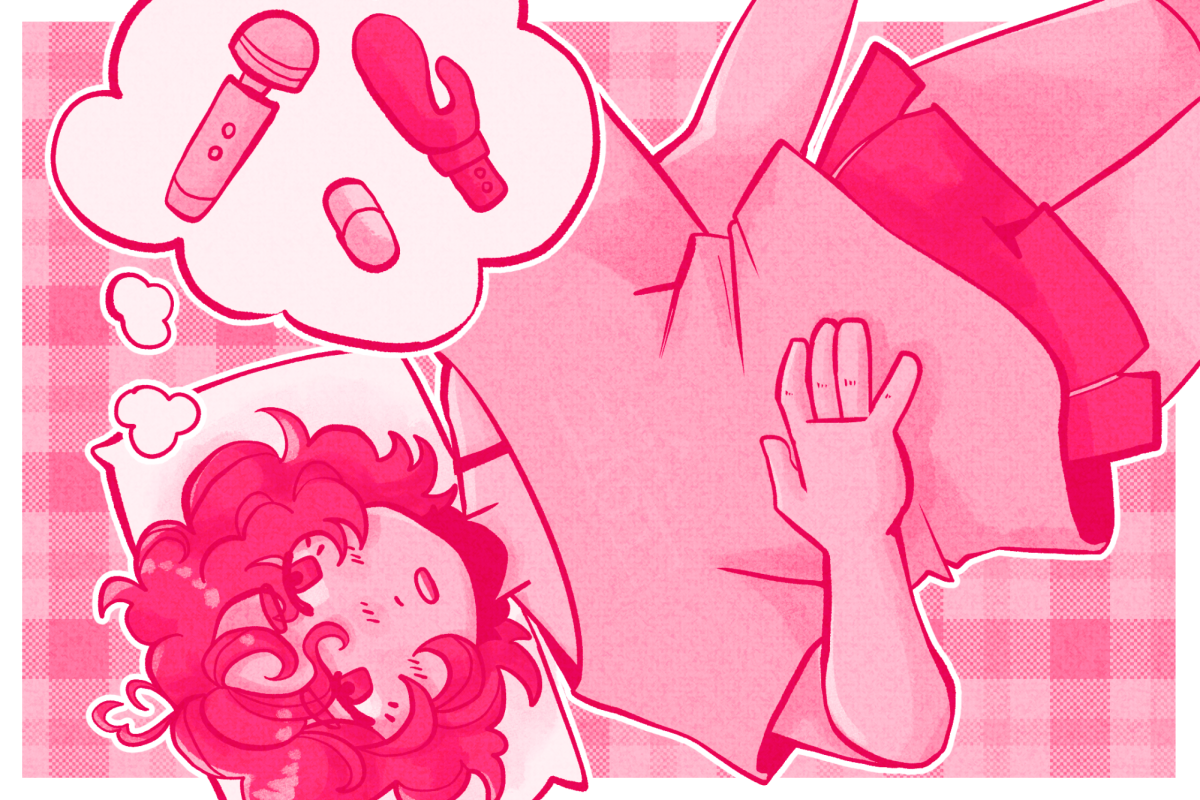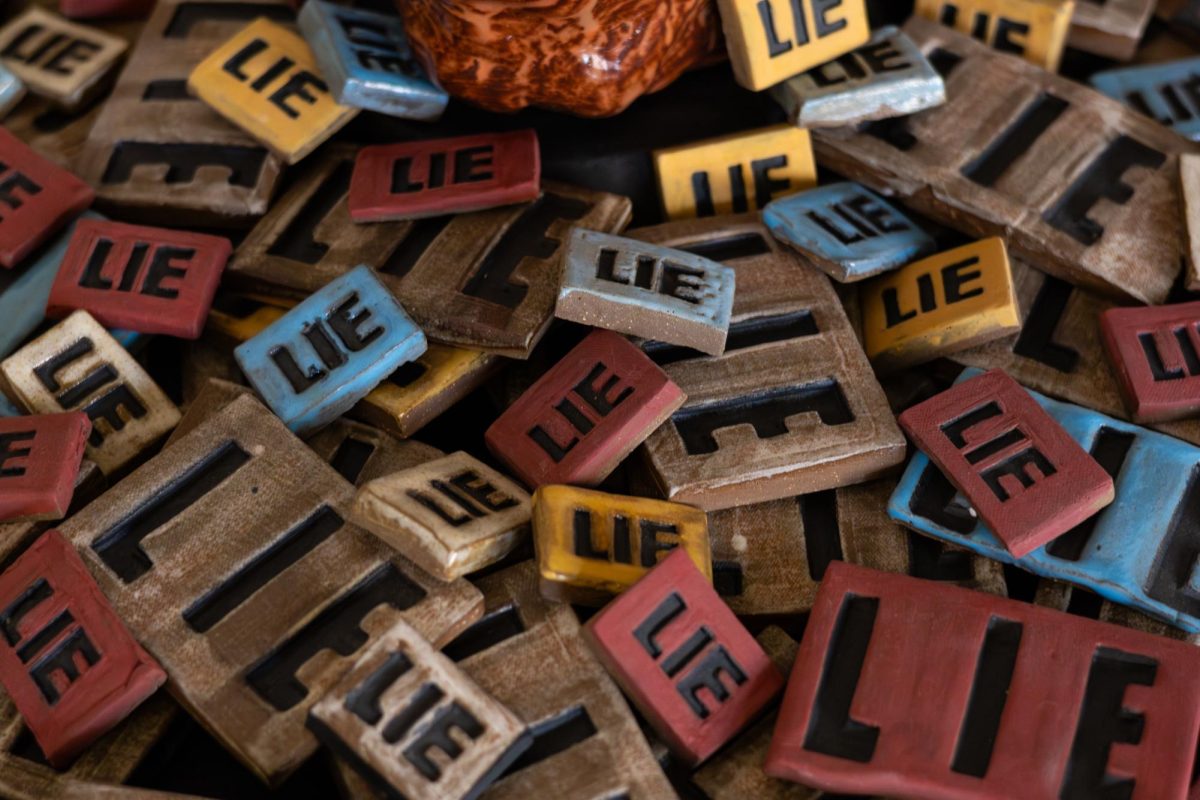Part of being in an alternative environment in college as a woman is all of the interaction with film guys. The “film bro” is an exciting trope of a man who enjoys movies a little too much. Please note, he absolutely will talk at you about the intellectual excellence of Quentin Tarantino’s feet features.
Now, this is not to hate on people with passions. I love a man who fervently describes the cultural significance of the Lego movies. With that being said, I started taking mental notes on the films these men were recommending to me.
“Fight Club,” “The Departed,” “A Clockwork Orange” and others I’ve since forgotten the names of haunt the dusty corridors of my psyche.
One day, a popular film phenomenon caught my eye in a media class. I was introduced to the Bechdel Test, a set of guidelines for measuring representation in a piece of fiction. This test was created by Alison Bechdel — an American cartoonist and LGBTQ+ advocate.
For Bechdel to watch a movie, she developed a set of criteria the film needed to meet. The usual standards are that the media needs to have at least two named women featured, the women need to talk to one another and the women have to discuss something other than men.
Get The Daily Illini in your inbox!
To her surprise, Bechdel — and I’m sure plenty of other women since its creation in 1985 — realized that a lot more films than she thought didn’t pass the test.
I urge you to sift through your favorite fictional pieces and conduct the test. If I brought you back to my list I mentioned earlier, none of those movies would be Bechdel-approved.
As I left that media class with the iconic lesbian on my mind, I began to wonder: How many women don’t pass the Bechdel test in real life?
I started to listen to what my friends discussed and the topics of our conversations. I also paid closer attention to my own thoughts. What was I prioritizing? The sad answer was men. I surrounded myself with people who centered men in their lives, and it seeped into my subconsciousness.
The fault doesn’t necessarily fall on women. Most women are born into a world ruled by men. Men run the conglomerates that shape how we live. They typically have the most legislative power, they develop extra taxes for feminine products and the men of America’s past have ingrained sexist ideals into the minds of our country.
So, it makes sense that the average girl would prioritize what a man thought of her. After looking holistically at the state of our societal ideals and values, I now understand why some women can’t accept their queerness or even why some women choose to value male influence over female perspectives in their lives.
Do I agree with those ways of thinking? Absolutely not. Still, I acknowledge why some of those viewpoints exist.
After intense reflection and analysis, I had to accept that I spent so many years thinking about men and what they want. Down to the most fundamental aspects of the “traditional” way of living as an American woman, men are always the centerpiece.
Society listens to the idyllic male description of beauty. We embrace men’s wrongdoings with the well-known saying, “Boys will be boys.” Even when thinking about what the heteronormative crowds define as “sex,” that act doesn’t stop until men decide they are finished.
Last spring, I finally cracked. I broke up with my boyfriend of six months because I couldn’t take it anymore. I was confused as to why I had grown tired of our relationship in the first place. I couldn’t come to a conclusion then, but I know now. I was burnt out and distressed.
I couldn’t keep up with the male gaze, and I grew more insecure every time I tried to appeal to men. I was dealing with mental battles around my own queerness and gender identity — two areas I felt my ex-boyfriend would not be knowledgeable in.
If you find yourself relating to these struggles, all is not lost. I severed my ties with the individuals who fed into my toxic mindsets, but it didn’t need to be so intense. To appreciate femininity and decenter men, you don’t need to exile all males you know from your life — unless you want to, of course.
For me, celebrating my sexuality was important in my journey of separating myself from the male gaze. I put myself in accepting, queer spaces on campus. I found new groups that allowed me to explore my self-expression and grow closer to myself.
Next time you do something without thinking, whether it be your morning makeup routine or your response to a situation, take time to go through your thought process. Why do I do this? Do I dress feminine because I like to or because I was taught to like it? Do I picture a future with a man because that’s what I want or how it usually is?
Start questioning how you live and exploring other options if you feel something is missing.
Don’t get me wrong — I love a brunch where I listen to my friends talk about their romantic pursuits. Some of the most pivotal parts of my girlhood have been comforting my friends about the men in their lives. Still, let’s recognize who we fall on when the romance dies: our friends.
I stopped looking for a man to occupy my time, to impress, to think of constantly. I turned to my group of friends. The girls who had been there for me through it all, who have showered me with unconditional love and acceptance. They have been the ones to greet me for a night out and say, “You look beautiful.” Not anyone else.
I encourage you, dear reader, to set aside men for a little while. Talk to your friends about their day, their hopes and dreams, their childhood stories and set yourself free of male expectations.
It’s time women start living their lives for themselves and not to please anyone else. It’s extremely difficult and tiring at times, but I like to think of the strong women — like Bechdel — who had to overcome an uphill battle to share their views in a male-dominated world.









